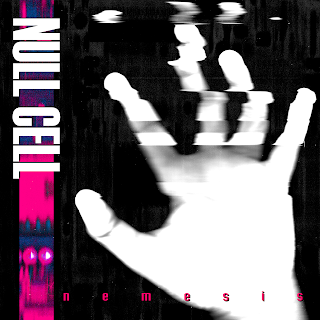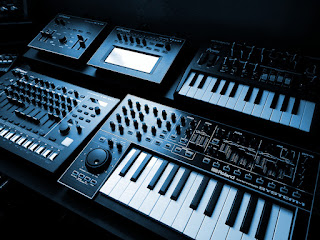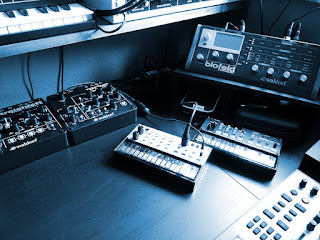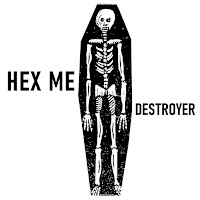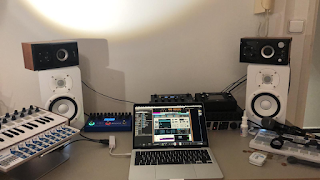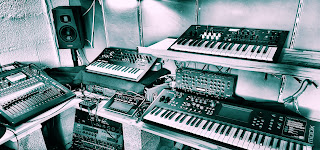Des recettes de cuisine en Français cette fois-ci, Vince Pujol nous révèle les secrets du son cyberpunk d'Electro Synthetic Rebellion qu'il entretient depuis 20 ans maintenant et donne des détails passionnants sur la confection de son dernier album Into Darkness.
A signaler que le Roland TB3 et le Yamaha MODX-6 (machine extrêmement complète) qui font partie du casting de cette sortie sont en vente en le contactant directement par MP sur sa page https://www.facebook.com/DarkElectroESR
French Kitchen notes this time as Vince Pujol reveals the secrets of Electro Synthetic Rebellion Cyberpunk sound he refines since 20 years now and provides us interesting details on making his last album Into Darkness.
Also note that Roland TB3 and Yamaha MODX-6 (very complete machine) which are part of this release casting are for sale by contacting him directly on his page
https://www.facebook.com/DarkElectroESR
Matériel et logiciels
Quel matériel/logiciels as-tu utilisé pour cet album ?
Synthés Hardware
- Access Virus C
- Access Virus Ti
- Behringer Deepmind 12
- Dave Smith MophoX4
- Korg Minilogue Xd
- Korg Wavestate
- Quasimidi Polymorph
- Roland JD-Xa
- Roland TB-3 (à vendre)
- Yamaha MODX6 (à vendre)
(Remarque: Le matériel que l’on voit sur les photos est un peu différent de ce que j’avais aux différentes périodes de composition des morceaux de l’album « Into Darkness ».)
Synthés et plug-ins logiciels
- Reaper (STAN/DAW)
- Kontakt
- Battery
- Codex
- Sektor
- Lethal
- Hybrid
- Plug-ins HeavyOCity
- Plug-ins/Librairies UVI
- Plug-ins/Librairies Zero-G
Plug-ins Fx & Processing
NI, iZotope, Waves, Reaper, Krotos
Mixage Hardware
- Allen&Heath Qu16
- MOTU Ultralite
- SPL Vitalizer
- TC Electronics M-One
Quel est ton matériel/logiciel préféré ?
C’est très difficile à dire car chaque synthé est une découverte et il faut du temps pour dire si on le gardera au-delà de quelques mois ou années.
Le Virus Ti, Virus C (et plus anciennement le B) restent des synthés qui m’accompagnent depuis très longtemps et que j’aime beaucoup. Je m’étonne au passage qu’Access n’aient jamais sorti un TI3 avec un bel écran tactile et des nouvelles formes d’ondes, effets, etc
Côté plug-ins, j’aime Battery pour créer et manipuler les kits de sons pour les drums et percussions. Mais j’y injecte des samples qui ne font pas partie de la librairie d’origine (que je n’aime pas beaucoup).
J’aime beaucoup les plug-ins DAMAGE1&2 de HeavyOCity pour créer les sons percussifs.
Côté STAN (STation Audio Numérique), j’ai utilisé Cubase pendant plus de 20 ans avant de changer depuis quelques années pour Reaper, moins cher, puissant et peu consommateur de ressources.
Côté mixage, j’ai toujours eu des tables/consoles de mix hardware et la nouvelle série de consoles numériques QU de Allen&Heath me plait pour travailler.
Y'a-t-il eu des évolutions dans ton setup ?
Oui très souvent ! Je suis un passionné de synthés et j’aime revendre et acheter quand je le peux.
Mais je ne suis pas un passionné des vieux synthés « légendaires » qui coûtent souvent très cher et demandent des révisions/réparations.
J’aime découvrir des synthés avec des nouvelles sonorités et un grain intéressant ; Des synthés que l’on prend en main rapidement comme actuellement le Korg Minilogue Xd, le Wavestate (sauf la partie Wave Sequencing assez complexe), le DSI Mopho X4 ou le Modal Cobalt8. Les synthés trop complexes à programmer ou avec trop de paramètres finissent par me rebuter, je n’ai plus le temps de passer des heures dessus.
Ce qui est intéressant c’est d’utiliser des synthés qui ont des grains sonores différents pour arriver à créer une sorte d’alchimie dans les morceaux.
Sur le sujet Hardware/Software, j’ai mis du temps à intégrer des plug-ins dans mon setup. D’abord parce qu’à l’époque où j’ai commencé la musique, les ordis et logiciels ne savaient traiter que du midi. Ensuite parce que je trouve que les plug-ins ont mis beaucoup de temps à arriver au niveau de la qualité sonore du hardware. De nos jours les deux fonctionnent bien ensemble mais pour démarrer un morceau, je commence très souvent par créer un son sur un synthé hardware, c’est certainement une habitude.
Pour le nouvel album, j’ai aussi beaucoup changé la façon d’enregistrer et de travailler la voix (ça avait commencé déjà avec l’album précédent).
Sound Design
Est-ce que tu utilises/modifies des presets ?
Oui le plus souvent je modifie des presets. Je crois qu’il est important pour un artiste/compositeur de s’approprier les presets d’un synthé pour en faire ses propres sons et créer au final une certaine authenticité.
Maintenant si un preset est vraiment bon et colle parfaitement au morceau, pourquoi le changer ? Il m’arriver donc aussi d’utiliser des presets « tels quels ».
Je ne pars quasiment jamais de rien pour faire un son. Certains sound designer aiment appuyer sur «init» et partir de zéro, pas moi.
Depuis quelques années, après avoir fini un album, j’aime bien remplacer un ou deux synthés et créer de nouveaux sons pour trouver de nouvelles inspirations et renouveler ma palette de sons.
Est-ce que tu programmes tes propres sons ? Sur quel synthé ou plugin en particulier ?
Oui, comme je le disais, je programme des sons sur tous les synthés que j’ai en partant d’un preset existant et en le modifiant comme je le souhaite.
C’est probablement sur la série des Virus B/C/Ti que j’en ai le plus programmé par le passé. Vient ensuite le Mopho X4 ou je programme beaucoup de sons de basses, j’aime son grain analogique même s’il manque un peu de brillance. Et plus récemment, j’ai beaucoup travaillé sur le Minilogue Xd et maintenant avec le Cobalt8 et le WaveState.
Avec les synthés plug-ins que j’ai c’est un peu différent. J’utilise plus les plug-ins pour compléter mes bases de morceaux sauf lorsqu’il y a un son qui sort du lot. Par exemple je trouve que Sektor fait des sons de pluck/bells excellents et je ne l’utilise que pour ça. J’utilise souvent Codex et Hybrid pour les sons avec arpégiateurs.
Une histoire personnelle à partager par rapport à une machine ?
L’arrivée du Virus Ti ! Un synthé très attendu qui était difficile à se procurer et qui représentait un gros investissement. Après avoir attendu le mien pendant des mois, lorsque je l’ai allumé pour la première fois, le son était horrible et saturait complètement d’un côté…Les sorties audio étaient cramées alors qu’il était neuf !…J’ai dû le ramener, me le faire rembourser. J’ai encore attendu plusieurs mois avant de pouvoir en commander un nouveau et le recevoir. C’est un synthé très complet que je garde depuis des années, j’ai passé des heures à faire des sons sur le Ti.
Avant les Virus, j’étais très attaché au Quasimidi Polymorph que j’ai beaucoup utilisé sur mon tout premier album « Distorted Visions » et les suivants, mais je ne l’utilise quasiment plus aujourd’hui et il ne marche plus très bien. En fait, je l’ai rallumé lorsque j’ai travaillé sur la reprise/ré-interprétation de « Reanimate ». J’ai regretté la disparition de cette marque que j’aimais beaucoup.
Méthode d'écriture et de composition
Quelle est ta principale méthode d'écriture ou de composition ? Est-ce que tu démarres avec une classique partie rythmique et une ligne de basse puis tu fais l'arrangement autour ? Est-ce que tu démarres avec une structure complète déjà en tête ? Est-ce que tu préféres improviser et enregistrer tes sessions avant de sélectionner des bouts pour construire tes morceaux ?
Je commence par créer un son ou par prendre un son qui m'inspire sur un synthé et je cherche une basse ou une mélodie qui me plait et sonne bien à mon oreille. C’est souvent juste un pattern de quelques mesures qui va me servir de base pour le couplet ou le refrain. La majorité des morceaux de « Into Darkness » ont démarré ainsi.
Il peut arriver plus rarement que je sois inspiré par un sample (cinématique ou loop) ou encore que je commence par créer un kit de batterie à partir de différents samples. C’est le cas par exemple sur le morceau « Mechanical Nightmare » ou je j’ai créé une sorte de boucle qui sonne très mécanique à partir de différents échantillons.
C'est à partir de cette base (pattern ou boucle) que je vais développer le morceau, ajouter de la rythmique, des mélodies et petit à petit créer la structure du morceau avec les couplets, breaks, refrain, etc.
Pour le morceau « Too Late » par exemple, c’est vraiment le pattern que l’on entend sur les 3 premières secondes du morceau qui a été la base. Un son fait sur le Deepmind12. Idem pour « Haunted Grounds » ; cette basse avec le filtre qui varie dès le début du morceau est la base du morceau et vient du Roland JD-Xa.
Pour « Broken », c’est le travail sur les accords avec les « Strings » qui ont servi de base au couplet et refrain.
J’ai rarement une structure toute faite en tête, je laisse le morceau se développer suivant mon inspiration. Le souci, c’est qu’on retombe souvent dans les mêmes schémas intro/couplet/refrain/break/etc…
Avec le temps, j’ai aussi appris à trier et ne pas garder ce que je n’arrive pas à faire évoluer dans le sens qui me plait. Quand un morceau que j’ai commencé fini par m’ennuyer ou ne me procure plus d’émotion, je le laisse de côté, ou j’efface tout et je recommence autre chose avec les sons qui m’intéresse le plus.
Production et méthodes de mixage
Fais-tu la production directement sur PC/Mac ou utilises-tu principalement des machines externes (des effets, compresseurs, EQ matériels) ?
J’aime mixer sur des consoles externes hardware et pas sur PC. Je trouve qu’on se concentre mieux sur le son. C’est aussi certainement une question d’habitude.
Et puis l’arrivée de consoles de mixages audio numériques avec écran pour visualiser et créer des courbes d’EQ, régler la compression et intégrer des effets est un excellent compromis.
Pour le mastering, c’est un mélange de hardware et de plug-ins.
Quelle est la partie la plus pénible et la plus plaisante dans le fait de faire un morceau pour vous ? Le Sound design, l'arrangement, le mixage, le mastering ?
Je n'aime pas passer des heures sur un mixage ou sur du mastering. Ce qui m'intéresse avant tout dans la musique c'est de créer des sons, des mélodies et des arrangements.
Il n’y a rien de pire quand on prépare un album que de devoir refaire le mixage d’un ou plusieurs morceaux quand on s’aperçoit qu’il est trop différent des autres au niveau du rendu sonore et de l’égalisation…A chaque album, il m’arrive d’avoir un ou deux morceaux qui posent problème et de refaire le mix plusieurs fois ; parfois même de devoir retravailler certains sons utilisés.
Et à une moindre échelle, passer des heures à traiter et ajuster les effets des pistes de voix, c’est parfois très long et pénible…
Mais tout cela reste indispensable pour faire un album ! Surtout quand on est seul et qu’on n’a pas les moyens de confier ce travail à un ingé son.
Pour moi, découvrir de nouveaux synthés, de nouvelles synthèses, écouter de nouveaux sons et créer un morceau, c’est une façon de s’évader, de construire un univers sonore, de raconter une histoire ou de faire ressentir des émotions ; Cela a toujours été mon moteur.
Vince Pujol's Tip
Avec-vous des trucs, astuces ou des conseils concernant la programmation de synthé, le sound design ou la production que vous aimeriez partager ?
Il y a beaucoup de choses à dire de ce côté-là. Je pourrai en écrire des pages comme tout musicien. Je donnerai juste quelques conseils en vrac pour ceux qui démarrent en particulier :
Donnez-vous du temps pour réécouter vos compos quelques temps après l’enregistrement et le premier mix. Il y a des morceaux qui quelques mois après l’enregistrement ne collent plus à l’esprit de l’album en cours. Ou tout simplement il y a des petits défauts à corriger ou un arrangement à refaire pour rendre le morceau plus fluide.
Votre audition (votre oreille) est votre guide et votre juge, alors préservez là ! Pas de volume trop fort et/ou trop longtemps. Les dégâts sont souvent irréversibles.
Pensez à faire des sauvegardes de vos données et enregistrements ! C’est souvent long et pénible mais cela peut vous sauver plusieurs mois de travail. Et pensez que les piles internes des synthés ont une durée de vie limitée comme le disque dur d’un ordinateur.
On trouve de plus en plus de vidéos ou de tutos de nos jours qui permettent d’apprendre et de partager des techniques pour progresser. Il ne faut pas hésiter ! J’aurai aimé avoir cela il y a des années pour progresser plus rapidement. De même pour en apprendre plus sur la programmation/synthèse d’un synthé en particulier, il existe souvent des reviews très approfondies.
Et surtout, faites de la musique par passion avant tout ! Mettez-y vos tripes et vos émotions, c’est le plus important ! Pour le reste, tout est une question de goût.
Contact info
https://www.facebook.com/DarkElectroESR
https://electrosyntheticrebellion.bandcamp.com
https://bio-md.bandcamp.com

